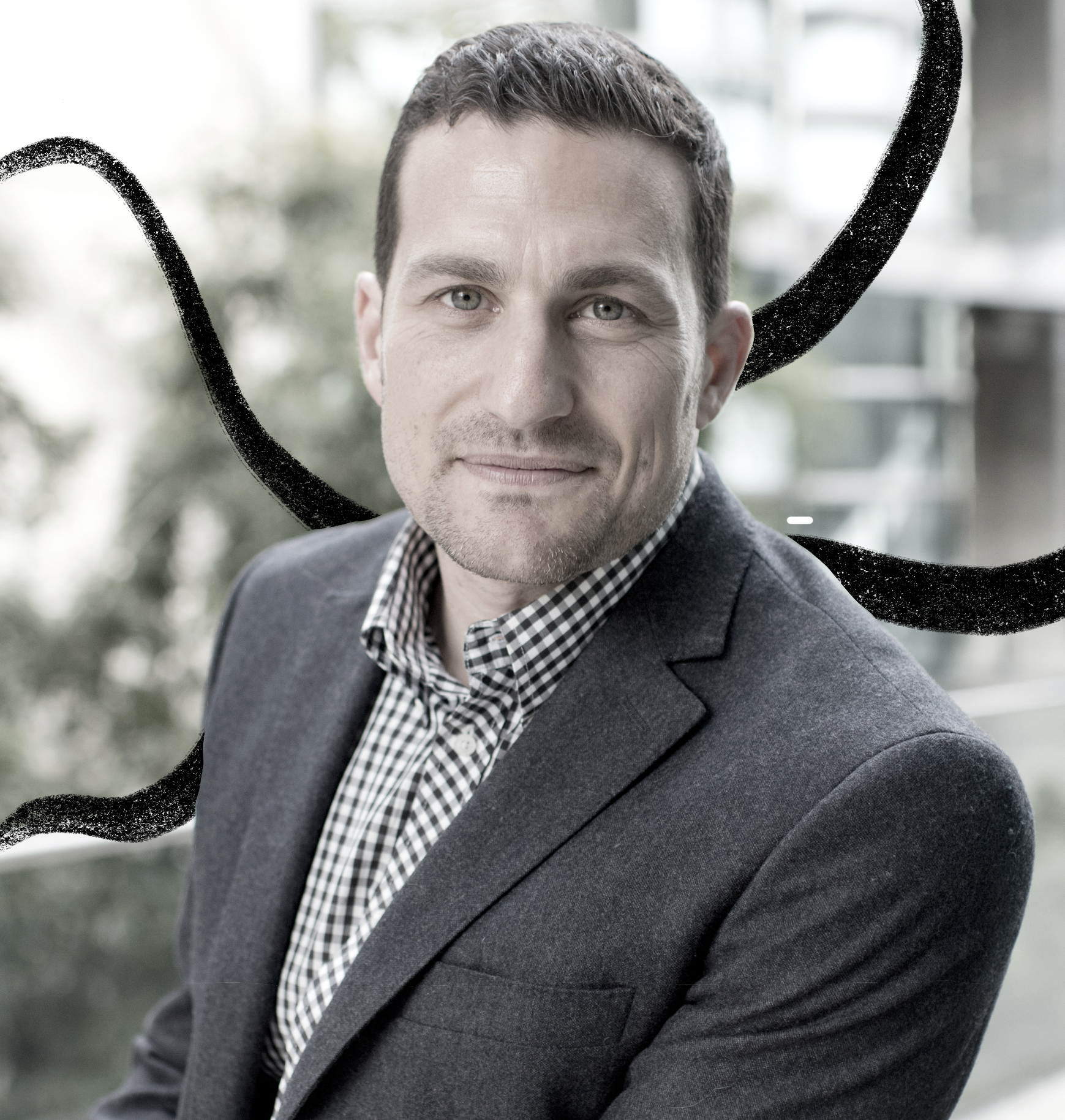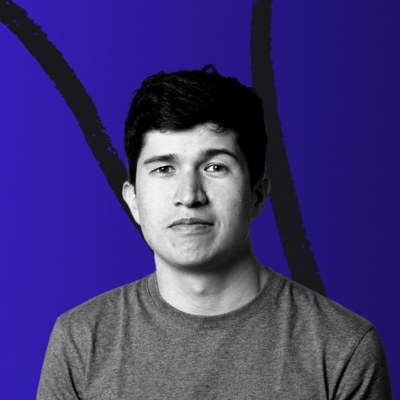
Sponsored By: Clay
Today’s newsletter is brought to you by Clay, a beautiful and private digital rolodex intentionally designed to help you be more thoughtful with the people who matter to you.
Thousands of executives, professionals, students, and creators use Clay to be prepared for meetings, search their network, and remember the important things about the people they care about. Start the new year thoughtfully by building more rewarding relationships with your peers, friends, and family.
Much of productivity is monkey-see, monkey-do.
It’s extremely hard to know what’s underneath our own behaviors, and as a result we turn to pet explanations, and lots of trial and error to figure out what kinds of tools and routines work best for us. It’s very rare to find a person who has found a routine that works for them and can tell you exactly why.
Dr. Andrew Huberman is that rare person. He’s a neurobiologist and ophthalmologist at Stanford University, and he also is the creator of the Huberman Lab podcast—a show dedicated to helping us understand how our brain and body control our perceptions, and behaviors.
Needless to say, I am a huge Andrew Huberman fanboy. And while I haven’t convinced him to come on to Superorganizers himself (yet), he’s talked a lot on his podcast and others about the protocols he follows to do his best work.
That’s what this article is about. We’ve broken down everything we can find about his current morning routine, and we’ve also collected and condensed the science behind it. He says it sets him up for what he calls a “delicious” focused work block in the morning and—having tried most of his suggestions myself—I agree.
So are you ready to learn how a neuroscientist runs his mornings? Let’s dive in :)
1. He starts his morning at the same time every day.
Dr. Huberman wakes up between 5:30 and 6:30 AM.
The first thing he does is a personal assessment, where he asks himself if he feels rested. If he does, he gets out of bed. If he doesn’t, he does a 10 to 30 minute Yoga nidra passive listening session. Yoga nidra is a type of non-sleep deep rest (NSDR) protocol that guides the listener toward a state of pseudo-sleep and is restorative especially when you haven’t slept enough.
After doing a yoga nidra session, Dr. Huberman gets out of bed and starts the day.
Why this works
Routines create powerful anchors for the recurring internal mechanisms within our bodies. Waking at approximately the same time is one way to link these mechanisms to particular times of day and has tremendous positive effects on metabolism, hormone regulation, and general feelings of wellbeing. The time itself doesn’t need to be exact or early; it just needs to be more or less the same every day.
But no one sleeps enough or perfectly every night. That’s where yoga nidra comes in. Yoga nidra sessions activate the parasynthetic nervous system, or the body’s calming system, and allow us to reach the restful netherworld between wakefulness and true sleep. If you try to make up for a bad night’s sleep with a two hour nap, you'll throw your carefully calibrated sleep schedule out of whack. If you instead practice yoga nidra or another type of NSDR and stick with your routine, you'll be better off.
You can learn more about Dr. Huberman’s tactics to Master Your Sleep and Be More Alert When Awake here.
Takeaways for your routine:
- Wake at the same time every day.
- Perform a rest assessment before getting out of bed.
- If you don’t feel rested, consider a yoga nidra or meditation session to reset your brain.
2. He gets sunlight first thing in the morning.
After waking, Dr. Huberman goes outside for 10-30 minutes every day.
He usually journals during this time and writes down some things he wants to do that day, but he sometimes walks or runs. He also avoids caffeine for the first 90-120 minutes he’s awake.
Why this works
Getting sunlight first thing, just like waking at a consistent time, is another way to anchor the internal mechanisms in your body. Every morning, our bodies naturally release a healthy influx of cortisol (sometimes called the “stress hormone”), which activates our metabolism and boosts the immune system. But if we don't signal to our bodies that it’s morning with sunlight (and instead scroll through our phones in our beds in the dark), they won't know it's time to “wake up” until well into the day. A consistently delayed circadian trigger, like waiting until afternoon to go outside, has been associated with insomnia and depression.
Journaling is just one example of an activity you can do outside to make sure you get sunlight, but it’s also a way to stay in your own mental frame (more on that in the next section) and to capture the new neural connections that have occured as we sleep. For Dr. Huberman, journaling allows him to capture that learning and, sometimes, to make breakthroughs as a result.
Walking (or running) has the additional benefits of ambulatory movement and optic flow, which correlate with improved mood. Dr. Huberman goes more in-depth on both of those in his episode on Maximizing Productivity, Physical & Mental Health with Daily Tools.
As for caffeine, our brains build up a neurotransmitter called adenosine during sleep, that starts to clear out naturally in the morning before building back up later in the day. If you drink caffeine too early, you run the risk of interrupting the natural adenosine flow, and having a caffeine crash later.
Takeaways for your routine
- Go outside first thing in the morning for 10-30 minutes.
- Consider running or walking to tap into a state of optic flow.
- Avoid caffeine for at least 90 minutes.
3. He avoids external inputs like email or social media.
Once Dr. Huberman is finished journaling and spending time outside, it’s time to work. He does two 90-minute blocks of concentrated work sprints and tries to make sure he does at least one before noon.
During this time he tries not to touch his phone or look at email or social media, because he’s trying to stay within his own mental frame as much as possible.
Why this works
If you want to do work that matters, you need to create a state of mind that lets you focus on what’s important to you. The more input you receive from the outside world, the more likely it is that you get pulled away from your own ideas and priorities. For example, let's say you wake up early, get some sun in your eyes first thing, and avoid caffeine. You're thinking about some projects you have for today, or start working through a particularly thorny problem that’s been on your mind. Then, you pull out your phone to check Twitter.
You're immediately bombarded with a picture of a friend's dinner, another hot-take by a VC, a sardonic joke by an influencer, and a new Gen Z slang word that reminds you just how short life is. What was it you were going to work on today? At that point, getting back to the right mental frame takes a ton of energy. If you hadn’t just checked Twitter, you would’ve never gone down that rabbit hole.
Takeaways for your routine
- Set daily goals for yourself and write them down before you start to work.
- For the first half of the day, don't look at email or social media unless it's absolutely necessary.
- Train your brain to do deep work. Huberman works in 90 minute blocks, but you can aim for shorter periods of time at first.
Want more of Dr. Huberman? Please tweet him and ask him to come on to Superorganizers! I'd love to sit down with him some time and bring our conversation to you.
Also, let me know in the feedback if you like these podcast summaries! I find there are lots of podcasts with information that I wished was condensed and summarized for me—so that's what I'm trying here. Help me make Superorganizers better. If you like this, or don't, I want to know!
The Only Subscription
You Need to
Stay at the
Edge of AI
The essential toolkit for those shaping the future
"This might be the best value you
can get from an AI subscription."
- Jay S.
Join 100,000+ leaders, builders, and innovators

Email address
Already have an account? Sign in
What is included in a subscription?
Daily insights from AI pioneers + early access to powerful AI tools










Comments
Don't have an account? Sign up!
Please continue publishing podcast summaries. "Lifespan with Dr. David Sinclair" would be cool. Thanks!
The most valueable thing for me here is to know about a new podcast. And the summary gives me enough information to decide whether I should spend time with it. These will be pretty helpful to me and I'd mostly use them as tools for podcast self review!